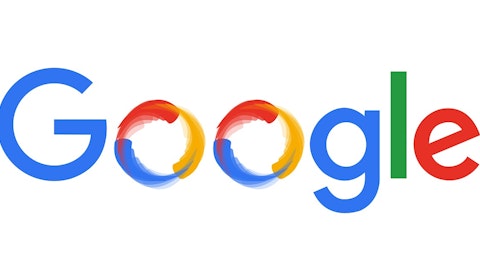In an aptly titled article, “Your Location Data Is Being Sold – Often Without Your Knowledge,” The Wall Street Journal laid on the most recent grievance in the ongoing privacy war between consumers and the digital platforms that they inhabit.
The article details the egregious ways that mobile platforms are harvesting users’ location data and selling it to advertisers for the creation of location-specific targeted ad campaigns. As the article notes, “Every time you say ‘yes’ to an app that asks to know your location, you are potentially authorizing that app to sell your data.” This is just another data point that platforms are selling for extremely high profits at the behest of their users’ privacy.
Of course, this is the often-undiscussed currency of the internet. Most platforms are free for users, and they are supported by advertising and user data sales. As the often-repeated moniker reveals: if you’re not paying for something, you’re not the customer; you’re the product being sold. The most prominent platforms, Facebook and Google, collectively earn more than $100 billion on this business model.

Alexey Yuzhakov/Shutterstock.com
This is problematic in several ways. First, there is the obvious invasion of privacy that users agree to but that most don’t really understand. It may be laid out in the fine print, but that print is very fine, and few people can truly appreciate the consequences of all that it contains.
What’s more, since platforms are collecting and selling user data, they are responsible for securing that data. As a string of recent high-profile hacks indicates, that’s far from a guarantee. As the Journal reminds us, “it’s hard to believe that hackers aren’t at least trying to compromise such a high-value target.”
Finally, and perhaps most egregiously, this system leaves out the most critical component, the users. They are the ones providing their personal data and the ones creating the value for the advertising, but their only compensation is free access to web platforms, which, when viewed in that way, is an outlandishly insufficient value proposition.
A Better Way with Blockchain
On these matters, the blockchain has a lot to offer.
The blockchain was first introduced in 2009 with the launch of Bitcoin, but it’s proven especially adept at providing solutions to many of the most pressing issues facing tech companies today. For the advertising industry, the blockchain may disrupt the entire process on its way to creating a better method for everyone.
Platforms like Wibson, a blockchain-based marketplace for user data sales, connects users directly with companies so that they can securely sell their personal data. In this way, users get a financial cut of the lucrative business arrangement that currently dominates the advertising industry.
Better Transactions
By tokenizing user information and making it willingly for sale Wibson and the blockchain are protecting users’ privacy while also directly incentivizing their participation. According to some estimates, user data is worth upwards of $240 a year for each person who participates in the process. Rather than pretending that the user is valueless, Wibson makes them valuable and powerful. It’s the proper orientation for an industry predicated on the value of user data.
Better Security
Moreover, the blockchain is renowned for its security capabilities that currently protect the most valuable cryptocurrencies in the world. By decentralizing the network, user data is protected against DDoS attacks that so often result in a data loss.
Since companies can’t afford to be the next Yahoo or Equifax, the blockchain provides superior protection for the company and the end user. For companies embracing the blockchain, this is a value-add that differentiates them from the competition.
Better Data
All data is not created equally, and there are several ways to create a “false positive,” when mining online data. When information is sold directly and verified by a third party, marketers are guaranteed usable and comprehensive data. The tokenized economy makes this a reality, and it’s a transformative process for the ad industry.
As our lives become increasingly digital and mobile, advertisers will strive to meet consumers in the places they spend the most time. As a result, digital advertising and the data collection that accompanies it will proliferate as well. With the blockchain, users are more fairly compensated for their information, they are more protected against attacks, and their data is more reliable and more usable.
When The New York Times declared “The Bitcoin bubble may ultimately turn out to be a distraction from the true significance of the blockchain,” this is what they meant. The blockchain will reorient our current relationships with technology, and everyone stands to benefit from the change.





